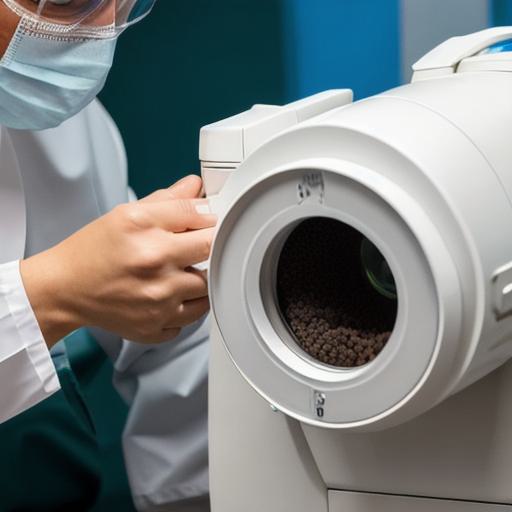Introduction
Pets are an important part of our lives, and we take great care to ensure their health and well-being. However, sometimes it can be difficult to know when our pets are experiencing a medical issue that requires attention. One of the most common ways that veterinarians diagnose and treat illnesses in pets is through fecal exams. In this article, we will explore the importance of fecal exams for pets and how often they should be done.

Importance of Fecal Exams for Pets
Fecal exams are an essential tool for veterinarians in diagnosing a variety of health issues in pets. The stool samples collected during these exams can reveal important information about a pet’s digestive system, including the presence of parasites, infections, and other medical conditions. By analyzing these samples, veterinarians can identify any underlying health problems that may be affecting your pet’s overall well-being.
One common issue that fecal exams can help diagnose is intestinal parasites. These parasites can cause a variety of symptoms in pets, including diarrhea, vomiting, weight loss, and lethargy. Fecal exams are also useful in identifying other intestinal issues such as inflammation or irritation, which may be caused by food allergies or other factors.
Fecal exams can also help identify any underlying medical conditions that may be affecting your pet’s digestive system, such as gastrointestinal infections, cancer, or other chronic illnesses. These conditions can be difficult to diagnose through traditional methods, and fecal exams provide veterinarians with a valuable tool for identifying them early on.
How Often Should Fecal Exams Be Done?
The frequency of fecal exams will depend on the age, breed, and overall health of your pet. Generally, it is recommended that healthy pets have at least one fecal exam every 12 months. However, if your pet has any underlying medical conditions or is experiencing symptoms such as diarrhea or vomiting, more frequent exams may be necessary to monitor their condition.
For puppies and kittens, it is recommended that they have a fecal exam at least once a month until they are 12 months old. This helps to ensure that they are not experiencing any digestive issues that could impact their growth or development.
It is important to note that fecal exams should only be done by a veterinarian, as they require specialized training and equipment to properly analyze the samples. Attempting to perform a fecal exam yourself could result in inaccurate results and potentially missed medical issues.
FAQs
Q: Can I do a fecal exam on my pet myself?
A: No, fecal exams should only be performed by a veterinarian.
Q: How often should I schedule a fecal exam for my pet?
A: The frequency of fecal exams will depend on the age, breed, and overall health of your pet. Generally, it is recommended that healthy pets have at least one exam every 12 months.
Q: What can a veterinarian learn from a fecal exam?
A: A veterinarian can use fecal exams to diagnose a variety of health issues in pets, including intestinal parasites, inflammation or irritation, and other underlying medical conditions.
Summary
Fecal exams are an important tool for veterinarians in diagnosing and treating a variety of health issues in pets. By scheduling regular fecal exams, you can help ensure that your pet is healthy and happy for years to come. Remember, it’s always best to leave the analysis of stool samples to the professionals, as they have the specialized training and equipment necessary to accurately diagnose medical conditions.



